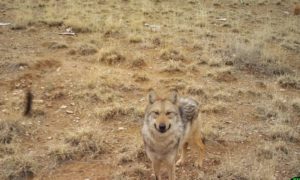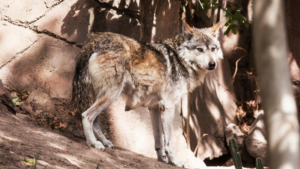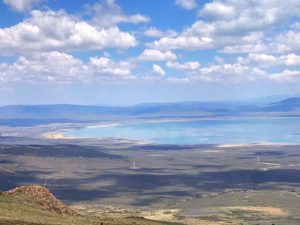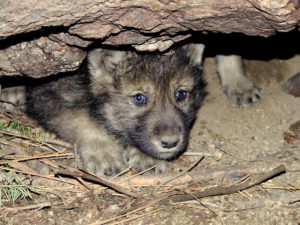“This settlement is a significant step towards securing vital protection for the bighorns on the Okanogan-Wenatchee National Forest,” said Greg Dyson, Conservation Director at WildEarth Guardians. “The Forest Service has been dragging its feet for years on protecting bighorns on the forest, and bighorns have paid the price for this delayed action with their lives.”
Domestic sheep carry two pathogens that, when transmitted to bighorn sheep, cause deadly pneumonia in bighorns and reduce lamb survival rates for years. The pathogens — known as Mannheimia haemolycta and Mycoplasma ovipneumoniae (or M. ovi) — are especially deadly because bighorns and domestic sheep are mutually attracted to each other. Once either disease occurs in a bighorn herd, it can be passed to unborn lambs. Low lamb survival and disease can persist in a herd for more than a decade. Members of an infected herd can easily transmit the disease to nearby bighorn herds. There is no cure or vaccine.
“It is imperative for federal agencies to provide at least 15 miles of distance between bighorn sheep habitats and public lands leased for domestic sheep grazing, because bighorn rams range that far from core habitats in search of mates,” said Erik Molvar, a wildlife biologist and Executive Director with Western Watersheds Project. “Domestic sheep diseases have already decimated bighorn populations in this area, so the Okanogan-Wenatchee National Forest will now need to start the process of closing some grazing allotments to domestic sheep if they are to provide adequate protection for native bighorn sheep.”
The Forest Service has continued to authorize domestic sheep grazing on the high-risk Wenatchee allotments despite knowing about the threat to bighorns as far back as 2010. At that time, the agency recognized that new management standards are needed to ensure separation of these species but has failed to adopt such standards on the Wenatchee allotments. Instead, the Forest Service has continued to issue annual authorizations allowing thousands of domestic sheep to graze on these high-risk allotments.
During this time, nearby bighorn sheep herds have suffered. A bighorn herd near Yakima was extirpated in 2013 shortly after domestic sheep strayed from the Wenatchee allotments. And, in 2020, Washington Department of Fish and Wildlife killed a dozen bighorn sheep to prevent the potential spread of disease.
Well aware of the problems, in 2016 the Forest Service completed a scientific analysis that concluded domestic sheep grazing on most of the Wenatchee allotments poses a high risk to four herds that comprise a majority of all bighorn sheep within the National Forest — and a large portion of wild bighorns in the state. In other states, federal agencies have ceased authorizing grazing that posed such a serious threat to bighorn populations.
Under the settlement, the Forest Service will complete a long-overdue environmental review in accordance with the National Environmental Policy Act to determine whether high-risk allotments should be closed.
Western Watersheds Project is a nonprofit conservation group founded in 1993 with more than 12,000 members and supporters whose mission is to protect and restore western watersheds and wildlife through education, public policy initiatives, and litigation.
WildEarth Guardians is a conservation nonprofit whose mission is to protect and restore the wildlife, wild places, wild rivers, and health of the American West. Guardians has offices in Arizona, Colorado, Idaho, Montana, New Mexico, Oregon, and Washington, and over 189,000 members and supporters worldwide.
Advocates for the West is a nonprofit, public interest environmental law firm that protects and defends the West’s public lands, water, fish, and wildlife.






